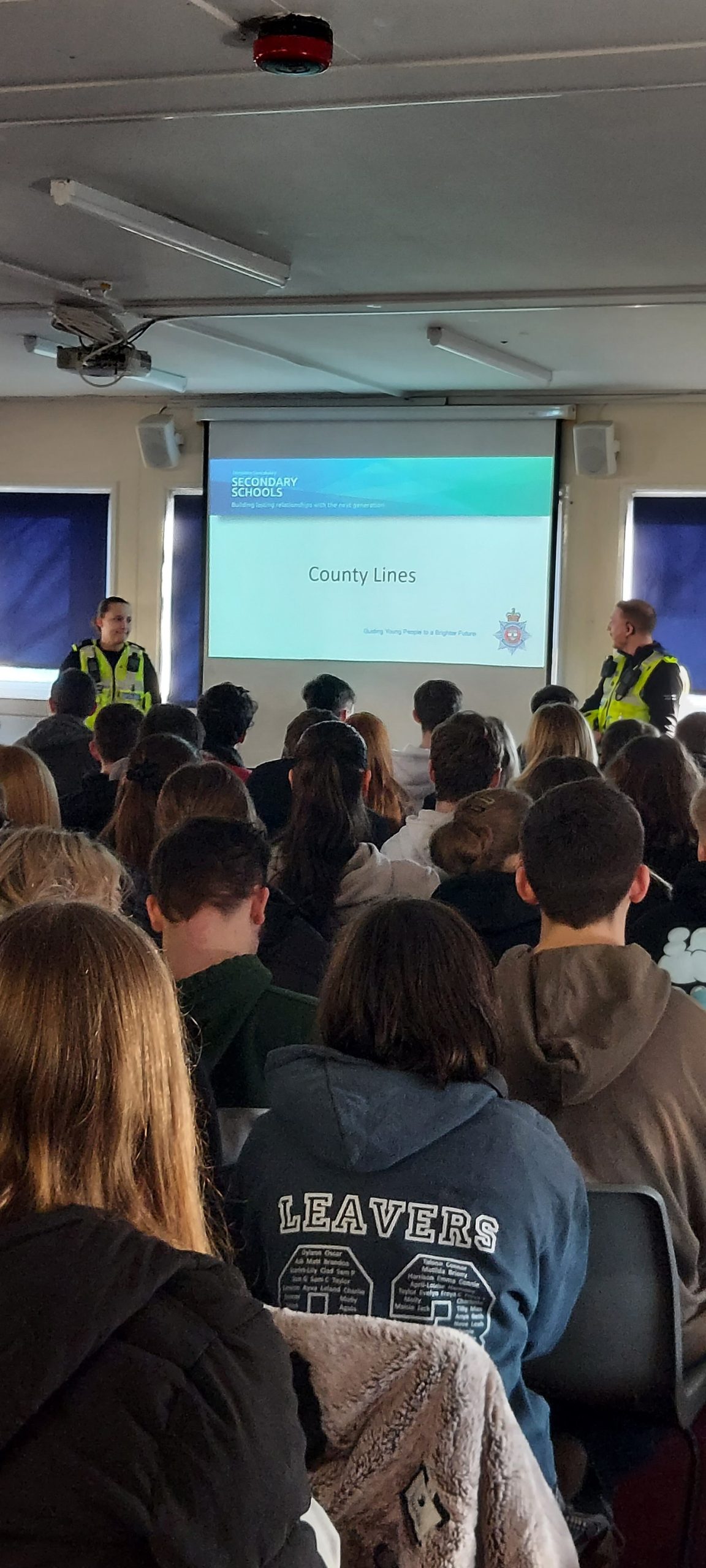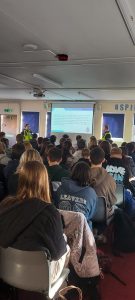
Students gain insight into ‘County Lines’ from police
Posted by: Belinda Hargreaves
Wed 13th March 2024
Police have been out and about educating students all about ‘county lines.’
Representatives of Derbyshire Constabulary have been visiting schools giving presentations about what ‘county lines’ is and their work in tackling the issue.
A spokesman for Alfreton Police SNT said: “County lines is the name given to drug dealers where ‘Organised Criminal Groups’ (OCGs) use phone lines to move and supply drugs, usually from cities into smaller towns and rural areas.
“OCGs will exploit vulnerable people, which includes children and those with mental health or addiction issues, by ‘recruiting’ them to distribute drugs.
“This is referred to as ‘Drug Running.’
“Criminals on some occasions will use a vulnerable person’s home as their base of operations, this is known as ‘cuckooing.’
“Our Youth Engagement Team have delivered County Lines inputs at secondary schools within the Amber Valley area, educating young people around what County Lines is, signs to look out for and the impact County Lines has on individuals and our communities.”

The Derbyshire Police spokesman further explained: “Criminal networks use social media to groom and recruit children for county lines.
“They may send them direct messages (known as DM’s) or share messages to wider groups as ‘stories’ or ‘posts.’
“The ways OCGs use social media include:
• Advertising drugs through photos, emojis, and price lists.
• Posting statues that show money, new drugs or when a dealer is open for business.
• Dealers sharing “stories” to followers and using social platforms to expand their network with “suggested” friends.
• Tricking people with “fast cash” scams, which is often referred to as “squares”. Victims may end up working for little to no money, which is known as “debt bondage”.
• Advertising for “workers” or “runners” to recruit people into county lines activity.
• Using hashtags linked to drugs.
• Using emojis as code for drug, violence, and sexual activities, e.g., the snowflake emoji (for buying cocaine), 8-ball emoji (for buying an eighth of an ounce) or the rocket emoji (for purity of drugs).
The NSPCC offers guidance on understanding specific apps and platforms that young people may be using – visit the NSPCC website for further advice on keeping children safe online.”
The spokesman added: “Signs to look out for ‘Cuckooing’ are:
• Repeatedly going missing from school or home and being found in other areas.
• Having money, new clothes, or electronic devices – which they can not explain how they paid for or how they came to be in possession of them.
• See a decline in school or work performance.
• Significant changes in emotional or physical well-being.”
To keep up to date with local policing go to here
Have you got a story to tell?
Email our Editor Belinda at editor@spiritof.uk, or upload your story direct to our website here
Cost of Living
Get out this Summer for just a £2 bus fare
Crime & Policing
Vandals attack heritage site in Derbyshire
Education & Skills
Fancy a job looking after the markets?
Health & Wellbeing
Member recognition at town’s leisure centre
History & Heritage
Filming at station ahead of celebrations
Local Government
Annual parish meeting for Derbyshire village
Top Stories
Best feet forward in memory of nephew
Youth Zone
Brass band proud of their young members
